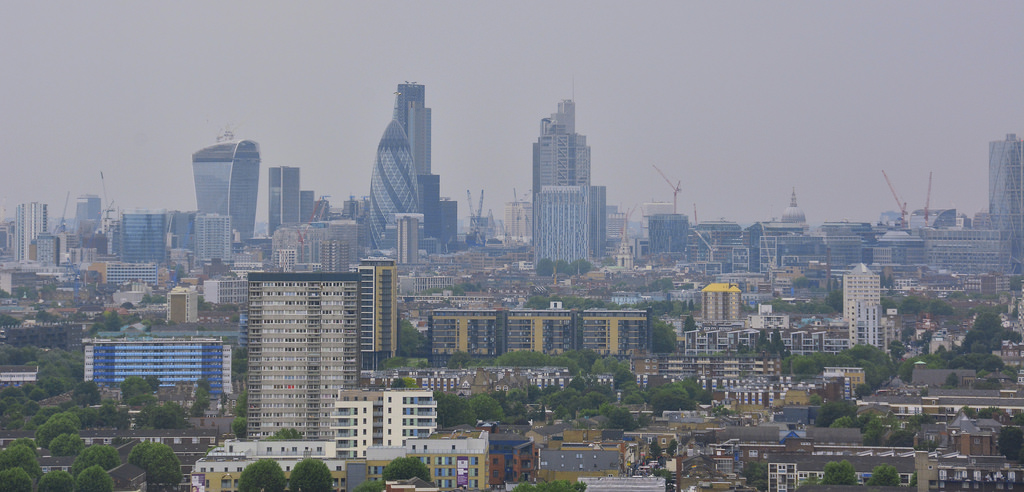
How This One Decision Could Affect All London Renters
If you’re not familiar with the term ‘selective licensing’, you’re about to be.
Designed as a tool for councils to regulate landlords, its pros and cons have been hotly contested across and beyond London as part of the endless debate over cleaning up the private rented sector.
Far wider in scope than the licensing councils already impose on houses of multiple occupation (much of which is mandatory), selective licensing applies to single-family or single-tenant homes.
To obtain a licence, landlords must prove their properties’ suitability to be rented out, and pay a fee to fund the councils’ administration costs. Those that fail to do so may be prosecuted, with the threat of hefty fines.
Redbridge Council is due a decision from the government on whether it is allowed to implement selective licensing across the whole borough. It is the first council to have to seek the permission of Greg Clark, the Communities Secretary, under new rules ushered in at the end of the previous government.
Those reforms appeared to make it easier to bring about selective licensing. Formerly, a council needed to prove its rented sector suffered from low demand or — more commonly in London — antisocial behaviour. But poor property conditions, an influx of migration, high deprivation, or high levels of crime are now also valid justifications. It is not difficult to imagine more boroughs in the capital taking interest.
But tenants’ rights organisations criticise the government for giving with one hand and taking with the other: extending councils’ ability to introduce selective licensing, but making itself the arbiter over whether they get the go-ahead in any given locality.
“It removes councils’ autonomy,” says Seb Klier, the policy manager at Generation Rent. “Licensing would make it easier for them to tackle criminal landlords. Instead of spending vast resources on prosecuting them, they can simply deny them a licence.”
‘Looking tough’
Three London authorities will begin their own schemes before the year is out. The boroughs of Croydon, Harrow and Southwark will each implement selective licensing, bringing the city’s total to eight if Redbridge also gets a green light.
And there are those who are nervous of the precedent that could set.
“Selective licensing is simply a way for councils to look tough,” argues John Stewart of the Residential Landlords Association. “It’s an expensive way to get a list of broadly compliant landlords. Criminal landlords — who do need to be clamped down on — won’t bother obtaining licences, because councils don’t have the resources to enforce their schemes.”
Selective licensing was pioneered in Newham in 2013. The council tells us that 2% of its 23,000 landlords who have licenses have been prosecuted, resulting in 25 bans and 283 cautions.
But critics say it is impossible to claim a triumph given that not all properties in Newham are yet licensed. They also point to the £4m initially given to Newham by the Mayor of London as a ‘kick-starter’ as crucial evidence that enforcing these schemes cannot prove cost-neutral for cash-strapped local authorities.
Consumer rights
Sophie Nguyen-Thomas has the profile of a stereotypical London renter: a 26 year old with a media job, she has felt forced to live in sub-standard properties as a matter of affordability. She has a litany of grievances from her tenancies in east London: mouldy walls, a veritable taxidermist’s office of dead wildlife accumulating in chimneys, and three months spent waiting for a new oven.
She says this licensing debate, with its broader themes of scrutiny, should be viewed from the perspective of all those who suffer at the hands of unscrupulous landlords.
“These properties are often treated not like homes, but commodities,” she says. “But what renters get amounts to far less than ‘consumer rights’ for something which is far more important.”
Stories of nightmare tenancies are highly emotive, but are we too quick to demonise landlords, and failing to properly consider the realities of licensing regimes from their perspective?
Last year, Enfield Council proposed to implement selective licensing — and to make it a blanket policy to avoid simply shifting bad tenants around within the borough. But local landlord Constantinos Regas won a judicial review on the grounds that the authority had failed to properly consult people in the surrounding areas to which those bad tenants likely would have been displaced, and a High Court judge quashed Enfield’s plans.
Considering London’s piecemeal, borough-by-borough licensing situation more generally, Regas explained to us he is not against a free registration system per se — particularly if there is a citywide standard. Nor is he against councils taking stronger action against rogue landlords with the powers they already have thanks to the 2004 Housing Act.
But the usual problem with selective licensing is that “arbitrary conditions create uncertainty for both tenants and landlords,” he argues. “In the Enfield scheme, for instance, commercial vehicles would have been banned from parking outside properties — hampering property maintenance, or tenants who are tradesmen.”
Selective licensing also gives what Regas calls a “false sense of security”.
“It’s not like the restaurant industry Scores on the Doors food hygiene system,” he explains. “There are no actual property inspections at the outset — so a council could be licensing a death trap. At the same time, if you were to mandate regular inspections, that could be seen as a violation of a tenant’s right to peaceful enjoyment of their home.”
Redbridge Council expects its decision on 22 September — although the government says its expected eight week turnaround is only a guideline. With half of London’s residents reportedly renters, millions could be affected by the verdict.


If you have any comments, please email the author of this article and click on the link above